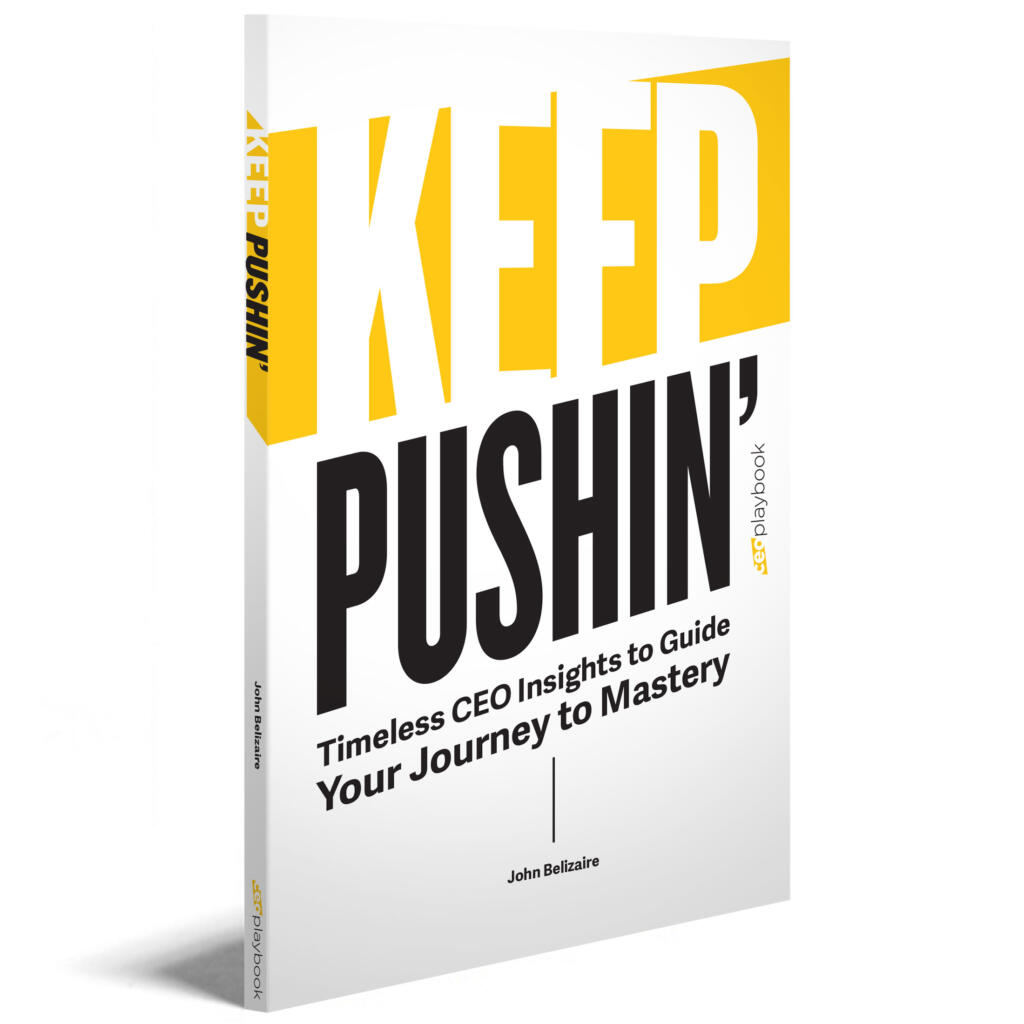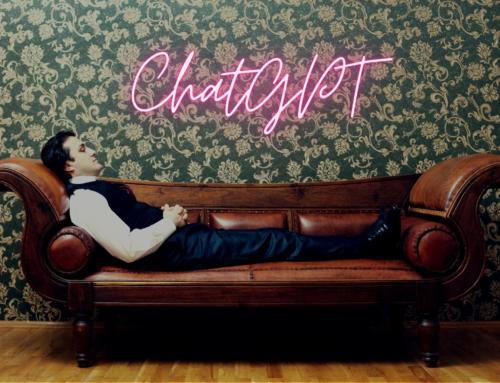I moved to the country.
It’s where my annual book list started.
It’s a big move.
Every summer, my family and I move to northern Westchester — not the Hamptons like most New Yorkers — to enjoy the country life. We took a break for a few years and stayed in the city.
After soul-searching and a hard look at our city life this year, we decided to make this a permanent move.
I am writing this at our new home, surrounded by a forest of boxes imagining all the fun we’ll have on our new journey.
Cool plunges in the pool. Farmers’ market visits on the weekend. Healthy, home-cooked meals assisted by local produce and one of man’s favorite elements — fire. Gazing at the stars without the light pollution from the concrete jungle. Watching our kids grow up in this peaceful environment.
One of my favorite things to do in the country is read a new book with the birds chirping in the background or the soundtrack of crickets.
—
One book I am sure to re-read is Arthur Brook’s “From Strength to Strength.”
It’s a book about us overachievers who are hedonistically addicted to swinging from one success to the next. We attach ourselves to these successes to feel happy. It’s a dangerous adventure that can lead to depression and our demise. It all stems from selfishness and feeling important.
Brooks lays out a practical roadmap for the rest of your life. I read it for my fiftieth trip around the sun.
“Drawing on social science, philosophy, biography, theology, Eastern wisdom, and dozens of interviews with everyday men and women, Brooks shows us that true life success is well within our reach. Refocusing on certain priorities and habits that anyone can learn, such as deep wisdom, detachment from empty rewards, connection, service to others, and spiritual progress, we can set ourselves up for increased happiness.”
His recipe is simple yet profound:
- Move away from l (focus on others)
- Use Things (don’t love them)
- Love People (don’t use them)
- Worship the Divine (or something beyond you).
By turning our focus away from ourselves, we can reach our zenith in the second half of life. It resonates with me.
It’s why I published my first book this summer. (More on that below). I want to focus on helping others — like a Modern Elder.
Living in the country will help connect me with nature, family, and love again.
I highly recommend reading wherever you find the country experience in your life.
OK…
Below is my annual list of favorite books. Enjoy it!
Non-fiction
Everybody Writes, by Ann Handley
I love writing. I didn’t know how much I did until I started writing my blog. Since then, I have constantly sought ways to improve my writing. So, each year I read books on writing to help me improve my craft. Ann Handley’s book is a modern guide to the art of prose that I will put in the same category as classics like Strunk & White. She has put together an unassuming collection of rules to help everybody write. Take a read, and expect to read it again and again.
Ikigai, by Hector Garcia
Ikigai may be hard to pronounce but it is a simple Japanese principle.
Loosely translated, it means “the happiness of always being busy.” Ikigai also explains the incredible longevity of the people living on the island of Okinawa, famous for having at least 25 people over 100 years of age for every 100,000 inhabitants. That’s more than anywhere else on Earth! Garcia takes us on a journey to meet these people and provides an inside view into these centenarians’ secrets. One insight: They have each found their calling in life. Their raison d’etre. The insights are fascinating and can enlighten any professional on a journey to happiness. It’s easier than you think to stay young while growing old because your Ikigai is already inside you.
How to Solve Impossible Problems, by Jennifer L. Clinehens
I love mental models. I have been studying for some time to help me understand the world and to solve problems. Occam’s Razor, one of my favorites, usually explains a lot about why there is always a simple explanation for unexplainable things. But, learning how to put these models into practice can be tricky. Clinehens takes a clever approach. She takes the thinking tools or models successful CEOs, philosophers, and other practitioners use to show you how to solve seemingly intractable problems. It is an easy read and a fun one.
[Pair with this article on Lateral Thinking.]
Founder Brand, by Dave Gerhardt
Not many CEOs appreciate marketing. I do. That’s why I follow, read, and learn from anything Dave Gerhardt puts out. He has amassed more learning and growth as a marketer in 5 years than any young professional I know. His company, Exit Five, is a gold mine of rapid learning in marketing for any professional.
Hell Yeah or No, by Derek Sivers
Unless you feel like “Hell Yeah!” about something, just say no. I read little books filled with simple thoughts, insights, and mental models while on the beach this summer. I felt a bit overwhelmed then and needed to shed some obligations in my life. It helped me appreciate slowing down my thought processes, being patient with everyone, and noticing more about myself. Derek compiles these thoughts over a decade. He asked himself simple questions, like “What’s worth doing?” The result is a series of personal insights that are handy for many. This is an excellent read for any CEO feeling a bit overloaded. [This book inspired my book. So, pair them together.]
The Exponential Age, by Azeem Azhar
In 1936, Theodore Wright, an aeronautical engineer at an industrial company called Curtis-Wright, made a compelling observation. He was studying the cost of making airplanes. The more planes they built, the more process improvements they discovered, and the more they learned. The optimized processes enabled them to make planes cheaper and faster. And cheaper planes produced more rapidly led to more demand and process improvements. The cycle continued.
Wright’s observations became known as Wright’s Law. The law states that as the production volume of an item increases, its cost falls, and quality improves. These cost reductions and process improvements — the 20% he noticed for airplanes — have a name. The Learning Curve.
Azeem Azhar explores the power of Wright’s Law and how rapid transformation over the last twenty years shaped this principle. Since 2010, the way we learn, communicate, transact business, and innovate has been accelerating unprecedentedly. Azeem explains how smartphones, superstar companies (like Amazon and Google), and technologies like AI now make us vulnerable to change. “We are witnessing the emergence of an exponential gap…” he says. “Our institutions– from our political norms to our systems of economic organization, to ways we forge relationships – are changing more slowly than the pace of technology.” Never underestimate the power of technology; it just creeps up on you. Technology is leaving our norms behind. It is a gripping read for anyone in the innovation field or anyone charged with understanding exponential technology.

The 22 Immutable Laws of Marketing, Al Ries & Jack Trout
Marketing is a powerful tool when you follow immutable laws. Take, for instance, The Law of Leadership, which says, “It’s better to be first than better.” Startups often try to be the best, fastest product in a category, competing head-first against established players. It turns out it’s too easy to get into the mind first. Create a new category or niche where you can be first. What is the leading brand in the cloud platforms? AWS. They were first. What is the leading brand in software-as-a-service (SaaS)? Salesforce. What is the leading brand in home robot vacuums? Roomba. What is the leading brand in streaming video? Netflix. What’s the leading brand in overnight logistics? FedEx. They were all firsts. Marketing is a battle of perception, not products (Law 3). The first brand in a category is almost always considered the leader. Ries and Trout do a great job introducing 21 additional laws that all build to help you understand the power of marketing and how to use it to the fullest.
“It’s better to be first in the prospect’s mind than first in the marketplace. Which, if anything, understates the importance of being first in the mind. Being first in the mind is everything in marketing. Being first in the marketplace is important because it allows you to get in the mind first.” (Al Ries, Jack Trout, The 22 Immutable Laws of Marketing)
“Surely You’re Joking Mr. Feynman!” by Richard Feynman
This book is hilarious. Feynman is one of the most recognized theoretical physicists in the world. He is a Nobel Prize winner known for working on the atomic bomb, quantum electrodynamics, nanotechnology, and the Rogers commission that investigated the Challenger Disaster. I remember him from that time. (I was in middle school in 1986 when the accident happened, and I was glued to the TV.) This is one of Feynman’s two autobiographical books covering different periods of his life as a student to a world-renowned professor. Each chapter is ripe with comical stories that give you sharp insight into his personality. He was not just brilliant but a cool hustler who loved life. I can’t count how many times I laughed aloud while reading this book. I read one chapter per night as a gift to myself. I encourage you to do the same. You’ll find some very interesting things about him you won’t believe, but they will teach you about yourself. It’s fascinating.
Lateral Thinking, by Edward de Bono
Sometimes solving an impossible problem requires a bit of creativity. But can creativity be taught, or is it a natural, innate skill? Most of us are taught to think of problems in a logical, step-by-step approach – vertical thinking. Edward de Bono gave his life to teaching a different approach. One that breaks the mold of classical thinking paradigms. His book was eye-opening for me. In it, he offers timeless, simple tools for cracking the code on impossible problems. As CEO, we often face problems that can’t be solved logically. We have to use Lateral Thinking. This book shows you how.
[Pair with this article on hiring Generalists vs. Specialists.]
Making Numbers Count, by Chip Heath,
I have read nearly everything written by the Heath Brothers. Their book, Made to Stick, is among my favorites. I even gave it out during one of the biggest sales deals at one of my ventures. Making Numbers Count is about how to make numbers approachable and fun.
If you are in the business of making complex concepts simple, this book is the perfect recipe book for you. An example is: “In 2020, Apple was valued at over $2 trillion. Imagine Apple as a country, with its shareholders as citizens, and its citizens’ sole source of wealth was Apple Stock. The total wealth of Apple would still be ahead of 150 of 171 countries, including Norway, South Africa, Thailand, and Saudi Arabia.” That technique is known as a Category Jumper. Trust me. It will change the way you communicate complex information to your audiences.
You Can’t Hurt Me, by David Goggins
David Goggins is beyond resilient. He is antifragile. After reading this book, I banged out 50 pushups for breakfast and 50 for dinner every night. A retired Navy SEAL, Goggins takes you through an implausible journey through the dark corners of his life, the wars with his mind, and his assent to echelons of superhuman ability. Whatever you are going through in your life or at work, David makes it feel so small. This guy runs on broken legs. He makes ultra sports look easy and conquers the dragons in his mind like a king in Game of Thrones. He will teach you how to do the same. (Please listen to the audio version. It’s a unique experience.)
[Pair it with our Antifragile series and Jesse Itzler’s book, Living with a SEAL. It’s a gut-bustlingly funny book about a serial marathoner who invites Goggins to live with him for 31 days as his personal trainer.]
From Strength to Strength, by Dr. Arthur Brooks
Happiness is not in your successes; it’s way beyond. I had a big early success in my career. For the next two decades, I tried my best to replicate it. I was a hedonistic treadmill trying to replicate success in everything I did. I’d close a big deal and want to run on getting the next one on the board. I sell one company and launch a new one instantly. This addictive focus on success as the route to happiness became a ball and chain for me. I accumulated successes to make me feel happy. But I was not happy. Arthur Brooks tackles this dilemma with beautiful storytelling. This is a must-read if you are going through a midlife crisis or heading toward one. Brooks unlocks the secrets to true happiness using his personal experiences, research, and journey in India. You learn that your smartness has nothing to do with your success as CEO. You learn to let go of things and the past and refocus your love on people. I loved it so much that I asked my wife to read it.
[Pair it with this podcast on the Rich Roll show: Success, Happiness, and Deep Purpose. ]
Bird by Bird, Anne Lamott
This is an elegantly written book that melds writing lessons with life lessons. It’s part memoir and part sage advice on how to form a relationship with writing. It’s a step-by-step process – bird by bird. Anne gives us a window into her journey in discovering these timeless truths about this all-important art. Being a great CEO relies on your ability to communicate. Being able to communicate sits at the heart of your soul. Let Lamott lead you down the path. Bird by bird.
21 Lessons by Der Gigi
Many ask me: “What is Bitcoin, and why is it worth anything?”
My answer is you need to dig into the technology. It’s an elegant way to digitize money and other assets truly. It’s an exponential technology — like the internet — that will have sweeping implications on finance, energy, and sovereign control in the 3rd world.
But, it’s hard to explain why this is true in a 2-minute elevator ride. Gigi, a computer scientist, journeys down the proverbial rabbit hole and emerges with 21 simple lessons that say it all.
One key takeaway from his writing is that Bitcoin (capital B, the protocol) is a perfect example of combinatorial innovation.
“Bitcoin is not only borderless regarding its inner workings but also boundaryless in academic disciplines. Economics, politics, game theory, monetary history, network theory, finance, cryptography, information theory, censorship, law and regulation, human organization, psychology – all these and more are areas of expertise that might help in the quest of understanding how Bitcoin works and what Bitcoin is. No single invention is responsible for its success. It is the combination of multiple, previously unrelated pieces glued together by game theoretical incentives which make up Bitcoin’s revolution. The beautiful blend of many disciplines is what makes Satoshi a genius.” Deftly explains Gigi.
Liar’s Poker by Michael Lewis
This book is a classic. I tried to read it many years ago in college but couldn’t get into it. Twenty years hence, I thought I’d give it a try. Michael’s experience at Solomon Brothers is a master class in understanding stocks, (new mortgage-backed) bonds, interest rates, inflation, arrogance, leveraged buyouts, and greed. “The men on the trading floor may not have been to school, but they have Ph. D.’s in man’s ignorance.” The quintessential quote from the book says it all. A blue-collar job quickly becomes white-collar, and all hell breaks loose. That rapid innovation wreaked havoc in the financial markets for two decades. I learned so much from this book. If you haven’t read it, get it. If you have, reread it. It will fit right in with the public markets at any time. (Malcolm Gladwell produced an entertaining audiobook version I bought during Cyber Monday. I am so happy I did.)
[Pair it with his companion podcast mini-series called “Other People’s Money” ]
The January 6th Tapes, by Pushkin / Preet Bharara
I was in Rabat, Morocco, when the January 6th attacks on the US Capitol took place. I was sitting in a conference negotiating with the country’s largest utility company. During one of the breaks, our host came into the room and said, “John, please come. You have to see this!” His eyes were wide and looked troubled. I followed him to a common area where a TV played the event’s live broadcast. “Let me guess, Haiti is experiencing another coup d’etat?” I said with a smirk. “No, that is your country!” I was utterly shocked. Pushkin’s audiobook team does an incredible job of taking the January 6th hearings and weaving them into an addictive narrative. I learned so much about the events that led to this historic attack on democracy and its aftermath. If you missed the hearings or didn’t have the time to read the 850-page report, I highly recommend this audiobook. Preet Bharara, host of the “Stay Tuned” podcast, delivers an incredible introduction.
Fiction
I also read some fiction recently. Here is what I managed to finish.
The Ocean at the End of the Lane, by Neil Gaiman – is a gripping novel about a short past.
Neverwhere, by Neil Gaiman – Neil is a fantastic writer.
Project Hail Mary, by Andy Weir – I think this is better than the one about Mars.
A Farewell to Arms, by Ernest Hemingway – a classic. Learned Hemingway’s writing style.

Ready to navigate your entrepreneurial journey like a pro?
Keep Pushin’ is your go-to guide, packed with invaluable wisdom from seasoned CEO John Belizaire’s 25-year career. With 75 powerful insights, this playbook offers smart, actionable steps to empower you in your daily challenges. From tough truths to empathetic guidance, Keep Pushin’ is your trusted companion, ready to provide indispensable advice and inspiration whenever needed.
(Pre)-Order your copy today!


